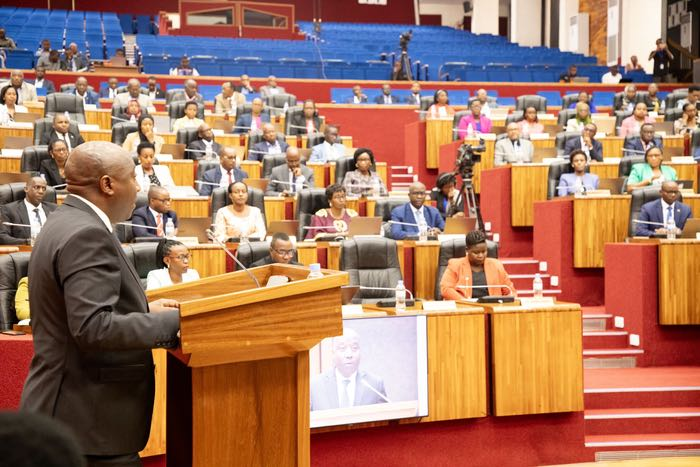
Prime Minister Dr. Edouard Ngirente presented the Government’s five-year program, the 2nd National Strategy for Transformation (NST2: 2024-2029), to both Chambers of the Parliament.
In his presentation, the Prime Minister began by noting that NST2 builds on the achievements of NST1 and aims to drive Rwanda towards Vision 2050. He highlighted key targets that will elevate the country to upper middle-income status by 2035 and high-income status by 2050.
The Prime Minister also shared significant achievements under the National Strategy for Transformation (NST1), attributing its success to collective efforts and ownership. He emphasized that with the same spirit, Rwandans can achieve even more in NST2.
While outlining key priority areas in NST2, the Premier noted that Rwanda’s economy is expected to grow by at least 9.3% annually over the next five years. The agriculture sector is projected to grow by 6% annually, while manufacturing and services are set to grow by 10% each.
He also revealed other ambitious targets the Government aims to achieve across various sectors. For instance, in terms of job creation, the target is to create at least 1.25 million productive jobs (250,000 annually).
Additionally, the Prime Minister indicated that private investment is expected to increase from $2.2 billion in 2024 to $4.6 billion by 2029, while national savings are projected to rise from 12.4% of GDP to over 25%. He also noted that export revenues are expected to double to $7.3 billion by 2029, and tourism revenues are anticipated to increase from $620 million in 2024 to $1.1 billion by 2029.
The Prime Minister also outlined priorities in the transformational social and governance pillars, focusing mainly on key targets in the education and health sectors.
He concluded his presentation by emphasizing the Government’s commitment to youth capacity building, enabling them to play an active role in the country’s development agenda and their self-development.
He also emphasized the importance of collaboration between Government and the private sector, Civil Society, Non-Governmental Organizations, Faith-based organizations, the media, Development Partners, all Rwandans and friends of Rwanda in the effective implementation of this Strategy. (End)
